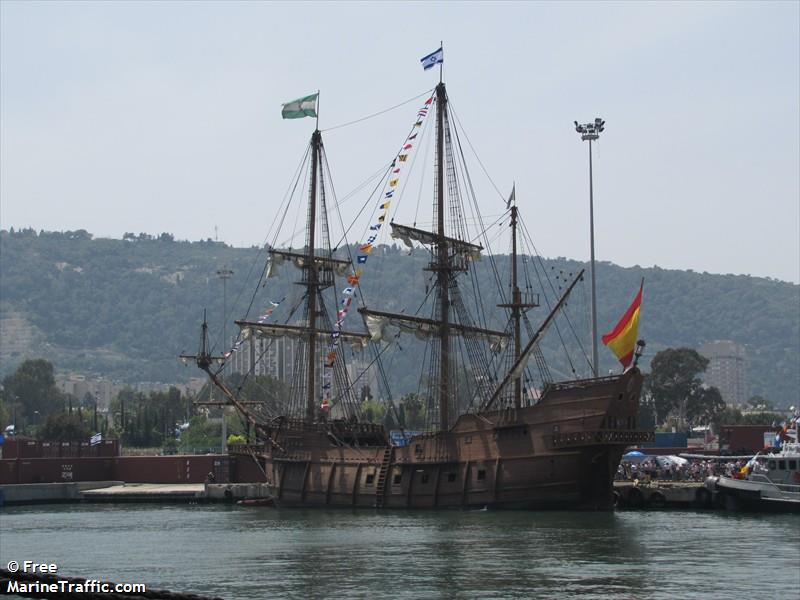Posted: March 13, 10:37 am | (permalink) | (0 comments)
We were witness to 3 nautical dramas in the period of a single week. The first was on a calm clear day as we were getting ready to go exploring. On the ocean horizon, a plume of very dark gray smoke rose skyward, as dense and solid as a pole or thick rope. Every fast powerboat in the marina headed out at maximum speed as the “mayday” was relayed over the VHF. A cargo boat bound for Haiti with earthquake relief supplies was burning! Fortunately, because it was a placid afternoon, there were several vessels in the area fishing, and all the people aboard were rescued and brought safely to shore. The boat itself, sadly, burned to the waterline and sank.
The second occurred at night just a few days later, as a frontal passage brought near gale-force winds. We were sleeping as well as could be expecting with the wind screaming in the rigging when the VHF came to life and we heard a request for help -- a boat at anchor lost its hold and began dragging, and was being pushed onto the rocks. The occupants reported that they themselves were not in danger; another vessel nearby was heard saying it was too rough for them even to try to launch their dinghy to try and assist. The storm continued to grind the boat against the rocks; we saw the boat being towed back to the US (over 200 miles) the following week.
The third was a young family on a new-to-them boat, headed for a new life in the islands. First they lost their engine, then they tried to sail, but the sail tore. Now they were significantly delayed, it was getting dark, and the wind was rising. They were just outside the marina entrance, but how to get safely through the narrow rocky opening to shelter? Several folks inside the marina volunteered to take their larger dinghies and tenders and try to tow the hapless boat in to safety. Some turned back as soon as they left the shelter of the breakwater; with five-foot waves breaking over their little rubber boats. A few of the larger tenders reached the boat, but even they had no success setting up a tow; the winds and currents were too strong. The best they could do was bring the children to shore where they would spend the night on a friend’s boat; the parents elected to spend an uncomfortable night aboard in the rough seas just outside the marina entrance, keeping the boat off the rocks. A cookout had been planned for the evening, although it seemed terribly callous to continue to party when these folks were so near, yet so far, and we could all just watch helplessly as they were rocked wildly by the gathering storm. In the morning, when conditions were calmer, several boats again went out to help. This time they were successful in jury-rigging the engine and getting inside to comfort and safety. Wonderfully, the attitudes of this family were still upbeat and in a few days they were able to continue their journey.
After all three of these nautical dramas, as you can imagine, the talk in the café was of nothing else. Beyond simple gossip, I believe there is a legitimate value in analyzing the accidents for lessons learned so as not to repeat the mistakes, although the tone of the comments was often less than charitable. “Of course their engine overheated! They were storing *what* in the engine room!” or “That’s a tough place to anchor in the current. How much scope did they have out? What kind of anchor? No wonder they dragged into the rocks in the storm!” No lives were lost in any of these events, just a few bruises and loss of sleep, and that may have contributed to the tone. I hope to think my fellow boaters would be more generous if the consequences had been more serious. Still, they were bad enough. But the analysis (fueled perhaps by too many rum drinks) had more than a hint of blame-the-victim. Sometimes it was just bad luck, sometimes it can be a chain of events, each of which is seemingly minor, but which cascade to create a major problem (a sailboat can navigate with loss of engine OR loss of sails OR be towed, but when conditions preclude all three? Then what?) But I think there was something else at work. The sea can be big and scary and unforgiving, and sometimes you just have bad luck. That’s why sailors as a whole can be a superstitious lot. But if we can find - deservedly or not - something that someone did wrong to *cause* their problem, then we can believe that we’re smarter, and bad things will never happen to us.



No comments:
Post a Comment